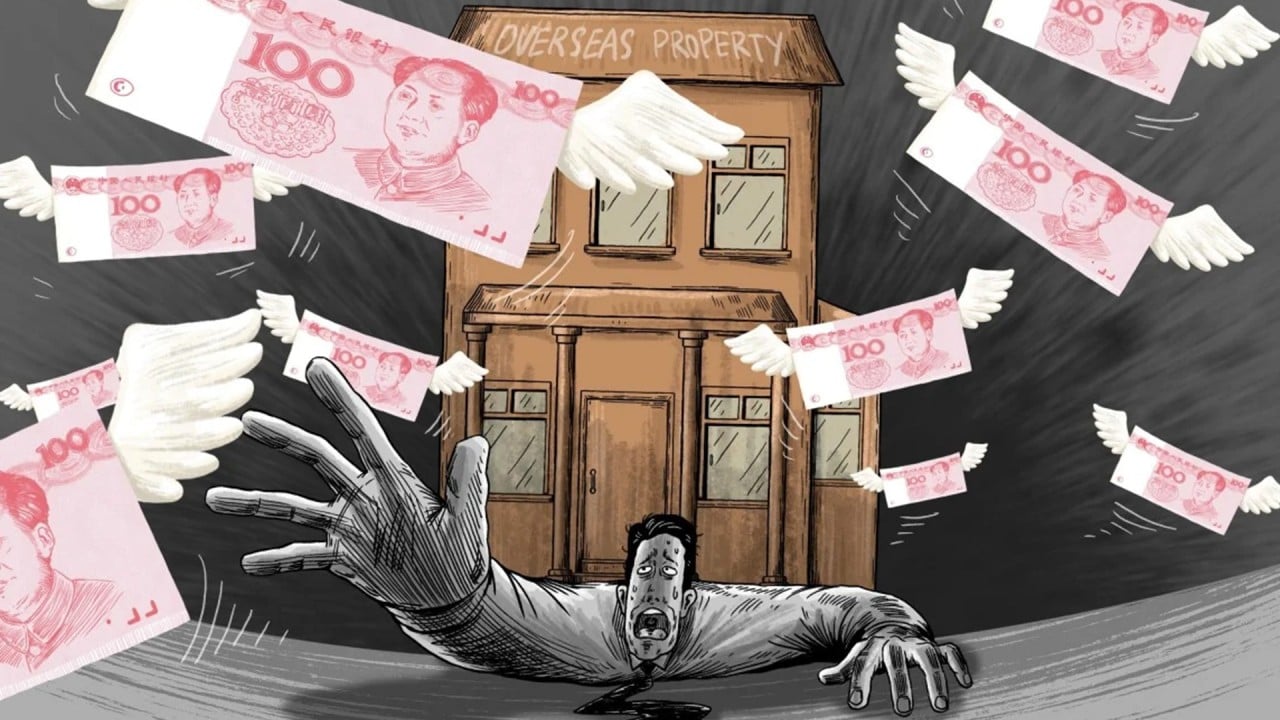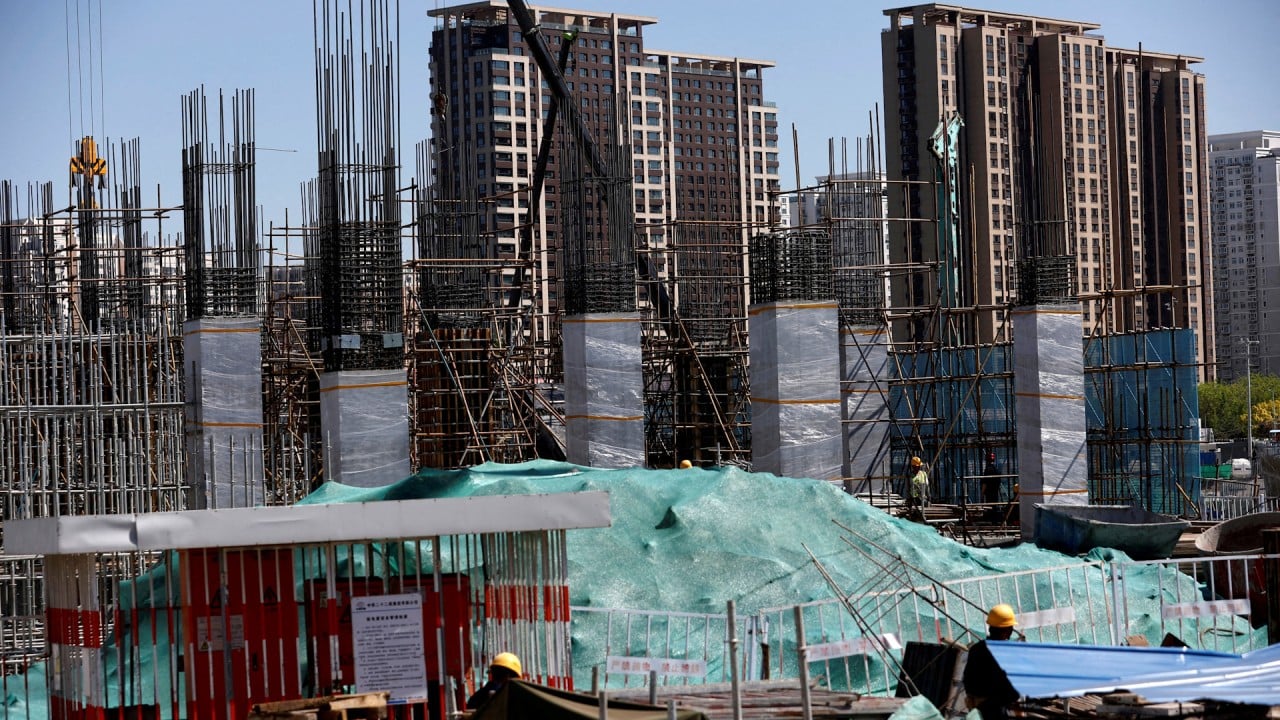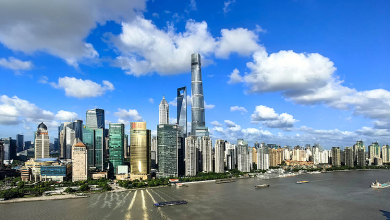Chinese property developers shrivel up in Australia, New Zealand but are they ‘hibernating’ for better times?
[ad_1]
The way these developers ended their time in the Australasian markets has been largely driven by their ownership and how much their funders have been affected by China’s property crisis.
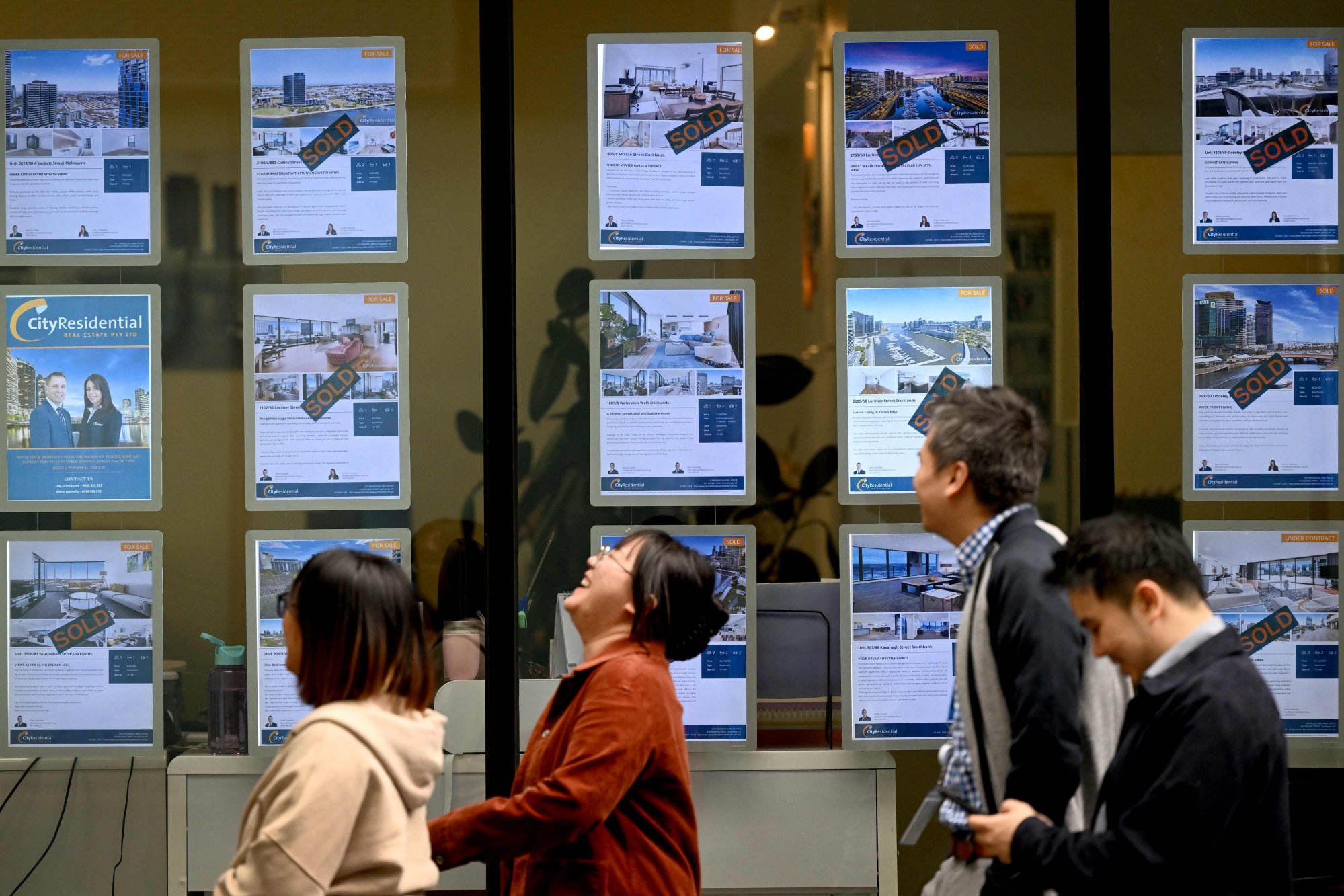
State-owned developers like Greenland Group and China Poly Group have been actively closing down their Australian operations as their parent companies claw back capital.
Subsidiaries of publicly-listed Chinese developers such as Country Garden, China Aoyuan and Chiwayland have also relinquished their interests as some of them struggle with debt repayment in the face of poor sales and weak cash flow.
There were also self-funded private developers that have evolved into local enterprises. They were not leaving but like their domestic peers, were not actively developing mainly due to challenging market conditions.
Why Australia’s resilient housing market is in a precarious place
Why Australia’s resilient housing market is in a precarious place
But unlike the Japanese, Chinese developers including those who have left are “hibernating” with the hope of building in Australia again when the market recovers, says Liu Hao, president of the Chinese Building Association of New South Wales.
The Australian real estate market remains a lure for them despite local backlash against foreign buyers and poor relations between Australia and China in recent years, Liu adds.
“When Chinese developers, particularly those with small to medium private businesses, arrive in Australia, the first order of the day is to apply for permanent residency,” Liu said.
“Many of us have come to Australia not just to make money but because we like being here. It’s a good place to raise a family,” he said. “That’s the difference.”
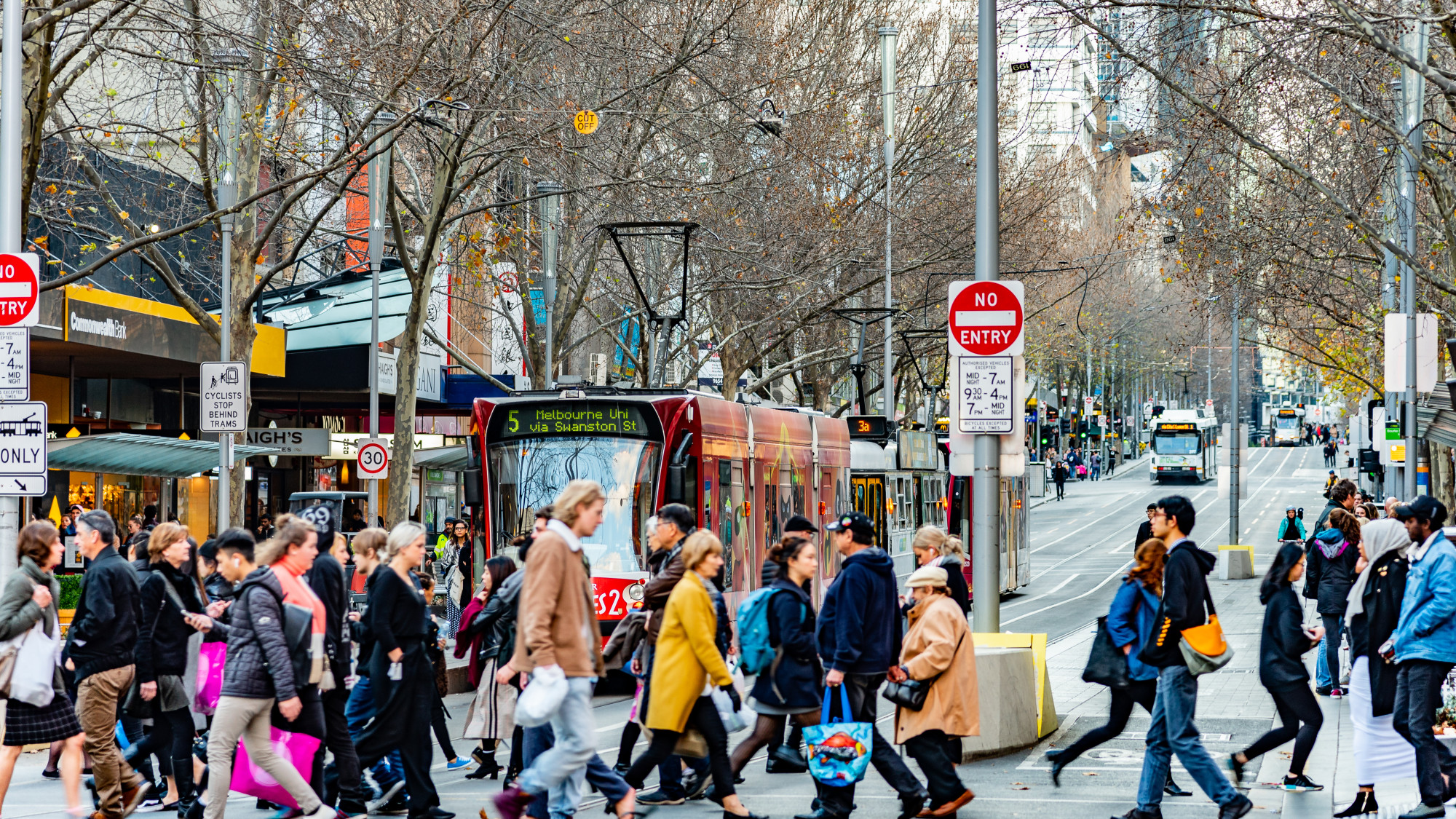
While there was a sense that Chinese developers had “fled”, many were still doing post-development work such as defect rectification and sales, Liu said.
Having developed their operations for a decade, they were unlikely to abandon the market just because conditions have changed, he added.
It is an old adage that Chinese developers and migrants will always be drawn to Australian real estate, says property agent Plus Agency’s Peter Li.
“The Chinese pullback is different from the Japanese retreat. Japanese developers retreated because their economy collapsed; Chinese developers have had to pull back because of capital controls in China,” said Li, who has dealt with many of these developers.
Chinese real estate development in Australasia soared around 2013 – particularly in Australia – at the height of China’s “go out policy” that led to many Chinese enterprises seeking overseas investments during a time when private cash-rich Chinese citizens were also seeking overseas property investments.
Home to many Chinese students and migrants, Australia and to a lesser extent, New Zealand, quickly became an investment and development target. This phenomenon increased the supply of much-needed housing.
State-owned enterprises in Australia
State-owned developers such as Greenland and Poly are among those which have made the clearest “exits” from the Australian market as they actively sell landholdings and downsize.
There are no state-owned developers in the smaller housing market of New Zealand, according to the New Zealand Chinese Building Industry Association.
One of the earliest state-owned developers to arrive in Australia in the past decade, Greenland came with a clutch of cash before completing Sydney CBD’s tallest residential building, Greenland Centre, in 2020.
Its last project is the 900-apartment Park Sydney project in Sydney’s Erskineville with partner Golden Horse, another Chinese-backed developer. But after developing two stages of the project, Greenland and Golden Horse sold the rest of the project to a local developer in 2022, marking their retreat from Australian development. Greenland’s managing director has returned to China.
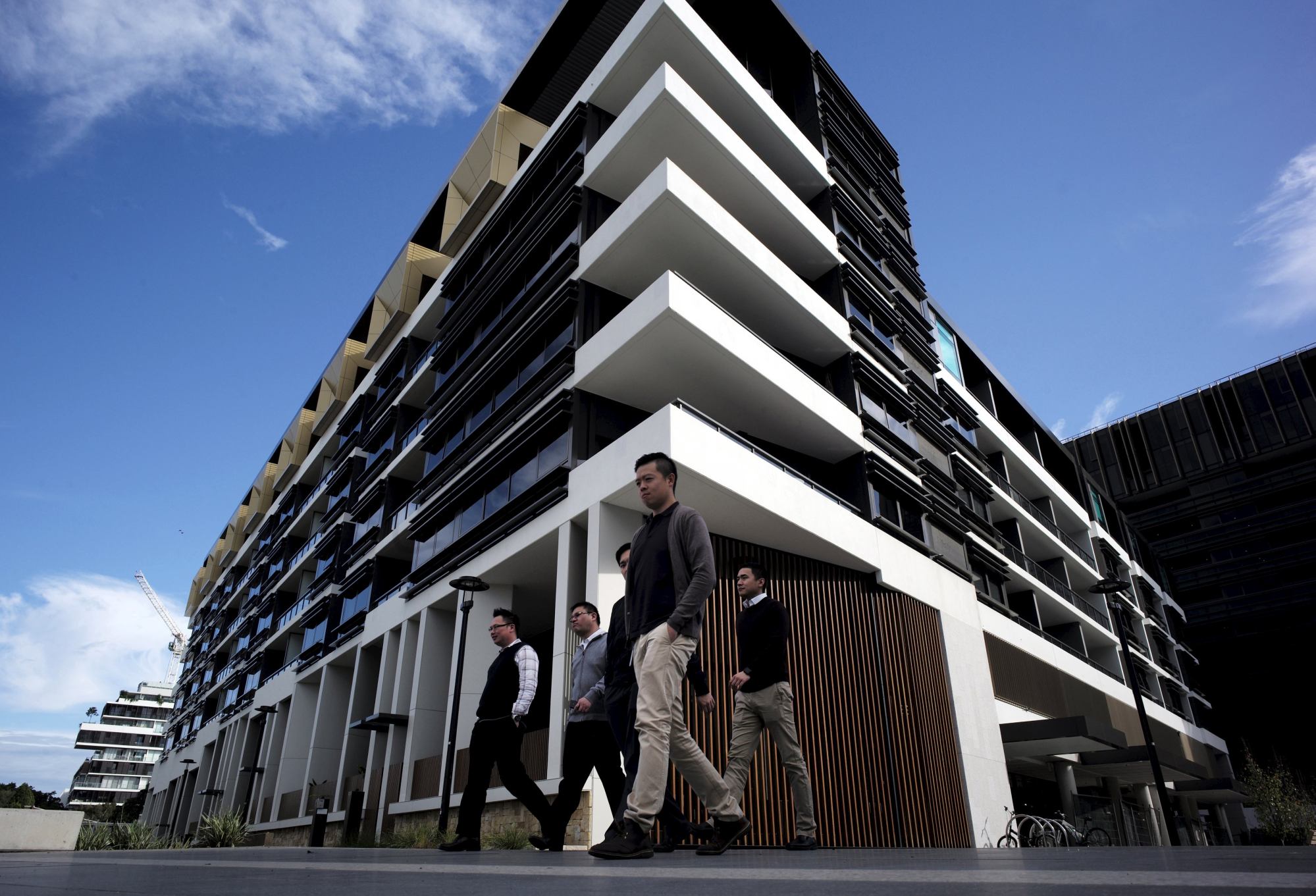
The Australian arm of state-owned Chinese conglomerate Poly entered the Australian market in 2015 launching residential and housing projects in Sydney and Melbourne and investing in high-profile CBD office buildings before scaling back in 2020.
It called time on talks to buy a 200-hectare residential development and golf course in Sydney’s southwest that year but completed projects it had commenced, including the recently finished Spring Square in Sydney’s Bankstown.
Poly’s Australian head of sales Kevin Zhou said, in relation to the office buildings it owned in Australia, the company had enough cash to “hold and operate all its commercial assets with ease” but said it was looking for the right opportunity to “create maximum commercial value”, which could mean a sell-down.
While the company’s Australian managing director has returned to China, Zhou and executive director Robin Luan remained in Australia. Zhou indicated that Poly could still look at future development if it could surmount barriers like high construction costs.
“As an Australian developer with our current portfolio, there is no exit to speak of at the strategic level. We are cautious of the recent market changes … which lead to the great challenges to the survival of a property developer,” Zhou said.
China’s home developers suffer further sales skid to end miserable 2023
China’s home developers suffer further sales skid to end miserable 2023
Listed subsidiaries
Country Garden is the biggest listed Chinese developer to make a foray into the residential industry in Australia under the name of Risland, and has built flats and housing in Sydney and Melbourne since starting in 2014.
This Week in Asia reported this week Risland had entered into an agreement to sell its last landholding in Australia, stages three to six of the Wiltons Green project in Sydney’s southwest. Last October, it sold a 366-hectare housing site in Melbourne’s west to Singapore’s Frasers.
Back in bloom? Malaysia seeks to revive China-backed Forest City megaproject
Back in bloom? Malaysia seeks to revive China-backed Forest City megaproject
Another troubled developer, Hong Kong-listed China Aoyuan, also transferred its interests in all its remaining apartment projects in Australia to its local director in Australia in 2022, for a consideration of A$105 million (US$68.95 million).
Like Country Garden, the Guangzhou-based major developer also struggled with debt repayments. Last week, it gained Hong Kong court approval to restructure more than US$4 billion of offshore debt and loans.
Singapore-listed Chinese developer Chiwayland ended its development era in Australia after completing its Sydney project, the Stellar residential building in 2019. It has since closed its Australian office in Sydney, making all staff redundant except for a representative in Sydney.
China Overseas Land and Investment, a Hong Kong-listed company and part of China State Construction Engineering Corporation, completed one apartment project, Neue in Sydney’s north in 2021 but has not launched another one since.
Starryland Australia, the Australian arm of Fuxing Huiyu Real Estate whose parent company is Shenzhen-listed, is staying on and says it is set to develop its second apartment project in Sydney’s Granville.
Private developers
On the private end, Shanghai United, a cluster of 10 private Chinese property firms, completed the construction of the luxury apartment project Castle Residences in the Sydney CBD in 2022 and made A$40 million on the sale of the Intercontinental Hotel in 2021.
Greaton, originally backed by a little-known Hubei developer in China, has become a household name after persevering with the completion of the landmark building The Ribbon in Sydney’s Darling Harbour despite problems with construction partners.
The most high-profile exit – and one of the earliest – by a private Chinese player in Australia was Dalian Wanda’s withdrawal from two high-profile hotel and apartment projects in Sydney’s Circular Quay and the Gold Coast in 2018 after the Chinese government pressured it to crimp its overseas investments.
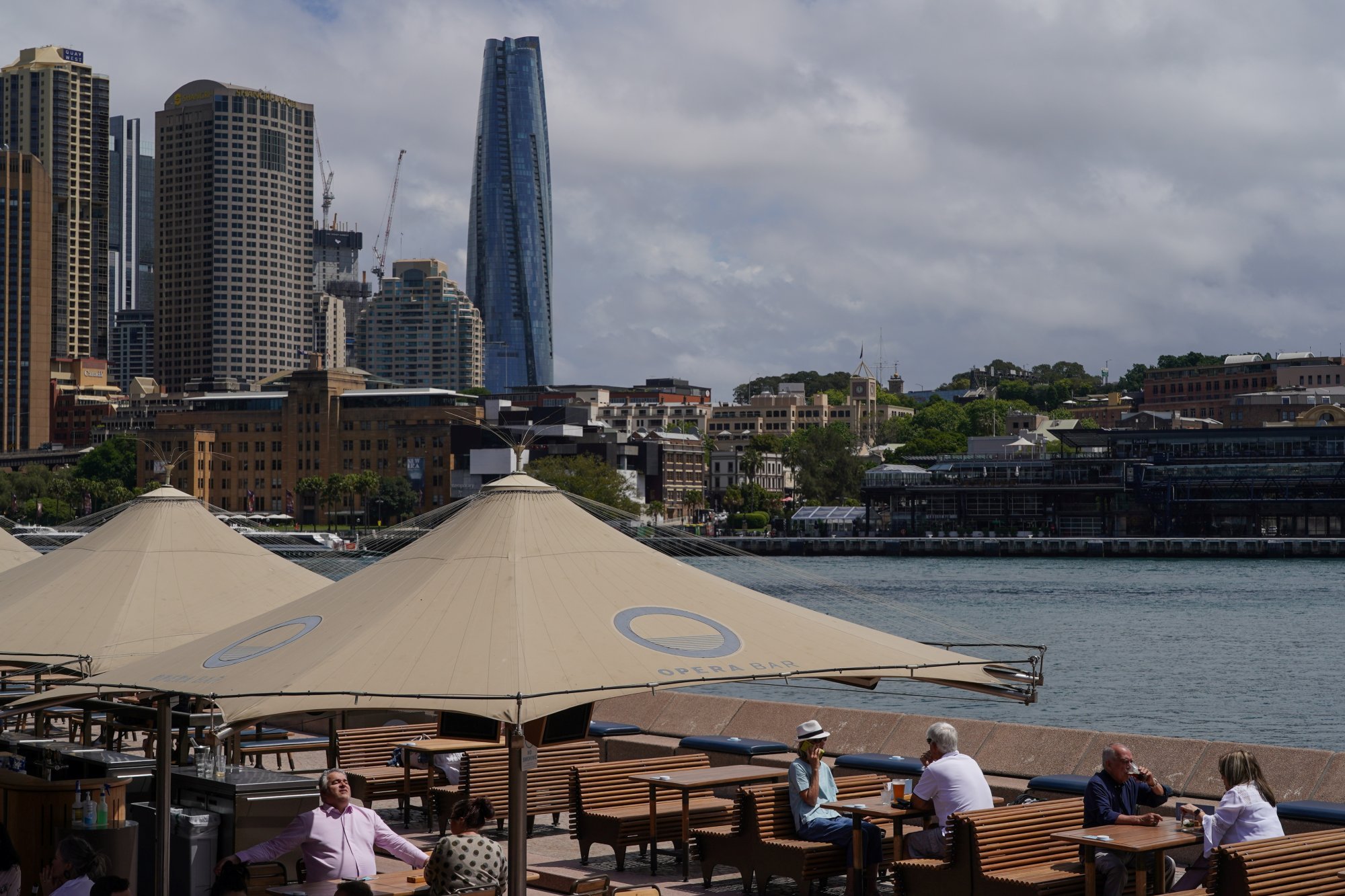
Projects in New Zealand
The New Zealand market has comparatively fewer Chinese developers.
Shundi Customs, part of Shanghai-based Shundi Group, tops the list as one of the most active Chinese developers in New Zealand.
It is still on ground with residential projects in Auckland and Queenstown and is constructing New Zealand’s tallest residential tower Seascape, due for completion this year.
New Zealand set to maintain China ties but Aukus issue could complicate
New Zealand set to maintain China ties but Aukus issue could complicate
Beijing-based developer Fu Wah group, founded by one of the richest women in China, Chan Laiwa, has so far completed the development of Auckland’s most expensive hotel, the Park Hyatt, in 2020.
While there are no state-owned Chinese developers in New Zealand, there are many local privately-funded Chinese developers who are staying on after establishing themselves as local developers, says Frank Xu, president of the New Zealand Chinese Building Association.
Most of them are holding onto their landholdings while they ride out challenging conditions, he adds.
“In the last few months, the market has been improving. At this stage, Chinese developers are still responsible for 50 per cent of Auckland’s housing development,” he said.
[ad_2]
Source link


